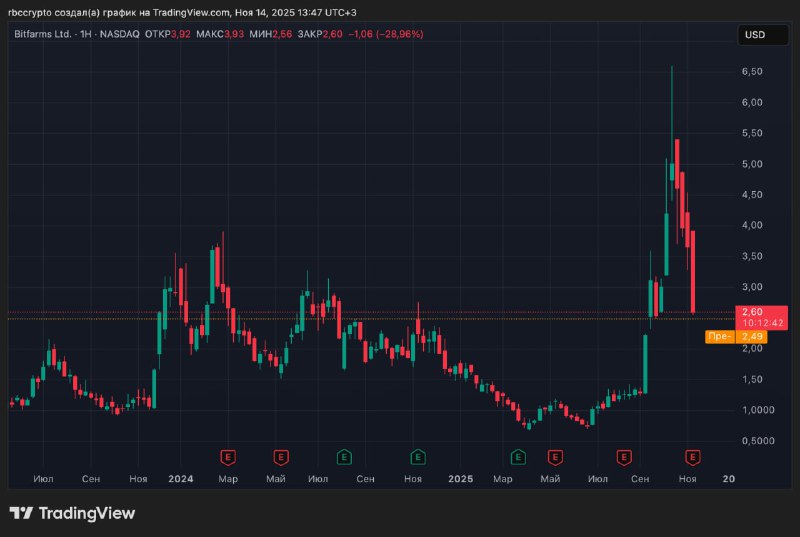Lead
Canadian miner Bitfarms (NASDAQ: BITF) plans to phase out its Bitcoin mining operations beginning in 2026 and redirect capacity to high‑performance AI infrastructure, including a new GPU‑as‑a‑Service model. The shift sent shares sharply lower, even as the company positions the move as a higher‑margin path forward.
Key Developments
- Bitfarms will begin a staged wind‑down of Bitcoin mining from 2026, reallocating resources to AI/HPC data centers.
- The company will convert its Washington State facility for AI workloads and launch GPU‑as‑a‑Service.
- Management framed the pivot as a superior return opportunity amid tighter mining margins and a weaker Bitcoin price environment.
“Although this site represents less than 1% of our infrastructure, it could be more profitable than our entire mining business throughout its history,” said Bitfarms executive Ben Gagnon.
Financial Snapshot
- In the third quarter, Bitfarms reported a $46 million net loss on $68 million in revenue.
Market Impact
Bitfarms’ stock fell sharply following the announcement. Intraday data showed BITF down roughly 29% to about $2.60, from a prior level near $3.50, reflecting investor concern over execution risk and the timeline of the transition. Despite the drop, shares remain more than double their levels at the start of 2025.
Industry Context
Bitfarms joins a growing cohort of miners shifting toward AI compute to diversify away from volatile mining economics:
- Peers such as Cipher and TeraWulf have announced or expanded AI‑focused projects, attracting backing from major investors including Google and SoftBank, alongside structured financing secured against expected AI‑related revenues.
- Elsewhere in the mining sector, CleanSpark completed a $1.15 billion private placement of convertible notes to finance expansion, underscoring strong capital markets interest in digital infrastructure plays—even as strategies diverge between pure mining growth and AI diversification.
What’s Next
Bitfarms’ pivot, slated to roll out from 2026 over an estimated two‑year horizon, aims to capture demand for GPU compute and AI workload hosting. Key milestones to watch include the Washington facility’s conversion timeline, GPU capacity rollouts, customer onboarding for GPU‑as‑a‑Service, and updates on profitability relative to legacy mining operations.
